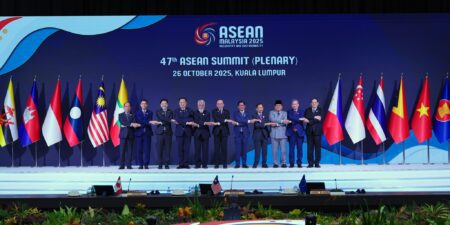
Korean President Yoon Finally Impeached, Korea Holds Presidential Election

Insights & News


Philippine President Marcos Reshuffles Cabinet Amid Corruption Scandals
The BGA Philippines team, led by Managing Director Victor Andres Manhit, wrote an update on …

Taking Stock of ASEAN Summit Season
BGA Senior Adviser Dr. Thitinan Pongsudhirak wrote a client update on the 47th ASEAN Summit. …

Singapore’s AI Moment: Can It Translate Governance Ambitions Into Sustained Growth?
BGA Singapore Managing Director Nydia Ngiow, Director for Technology Heidi Mah and Analyst Vanessa Kang …
At BowerGroupAsia, we are committed to
delivering result-oriented solutions for our clients
We have proven track record of helping the world’s top companies seize opportunities and manage challenges across the dynamic Indo-Pacific region.
















